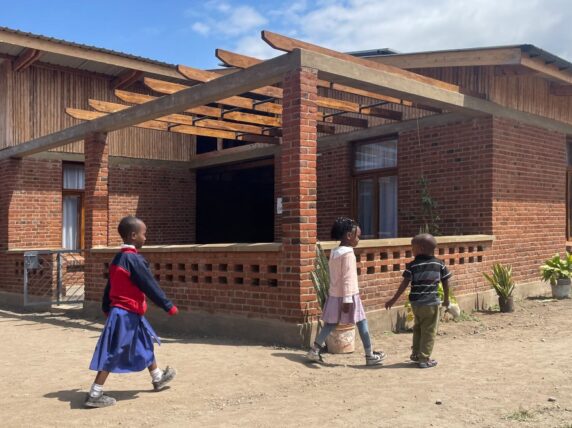Exploring the innovations that could transform international development
In the many conversations I have, the majority agree that the UK’s international development sector needs dramatically different ways of doing things.
There are some strong themes – the need to be anti-racist and support locally led development, to focus on inequality, to focus on climate change; for nature and development to be considered together. But the predominant narrative is one of questioning and uncertainty about what those new approaches could and should be.
This uncertainty is well founded. There are a multitude of paths that international development could take, the geo-political context is tumultuous, and change is happening quickly. In months, we have moved from AI being just for technologists to something that many of us can use. Having long talked of financial reform, the Bridgetown Agenda rapidly emerged to make steps towards that reform possible. We are in a transitional moment – we can use the evolutionary potential of this moment to galvanise a different vision for the future, one that is rooted in equity, sustainability and solidarity. To do that we need to have fresh conversations and have the tools and approaches to have those conversations effectively.
Innovations for international development
Bond’s Future Innovation Cards for International Development, which we are launching this week, is one such tool. The cards will help all our members and beyond deal with this uncertainty and build agile organisational reflexes in response to risks and opportunities.
Over the last 18 months, Future Dialogues has been looking at innovations that could transform the current international ‘aid and development system’ and what the UK’s role in this system could be. The project convened a group of 20 leading thinkers from the international development world and a few adjacent sectors to look ahead and reimagine a world that addresses the global challenges we face.
The project deliberately focused on surfacing and interrogating emerging ideas and innovations to challenge and inspire. The future is already here in different shapes and forms – these innovations show what’s possible, based on real ideas and practices, rather than utopian visions. They take us beyond a critique of the current system to show the potential of a multiplicity of ideas and innovations to transform it.
Explore our new tool Future Innovation Cards
Bond’s Future Innovation Cards is a curated set of 50 innovations to help individuals and organisations challenge their thinking about the future of international development and the UK’s role in it.
We invite organisations to use this deck creatively to explore, test and imagine different future scenarios and ask themselves what this might mean for their work.
Find out moreCreative ways forward
We need innovations in a range of areas. Our 50 innovation cards cover four sites of transformation: economics for people and planet; agency and solidarity; funding and financing for development, and shifting power in the international architecture. Each innovation has the potential to challenge the status quo. The magic is in how they come together, giving individuals and organisations a framework to envision creative new ways forward for the international development system.
Working with the cards, you might imagine a world where we have moved beyond ‘aid’. Where every country or region contributes to financing global goods like climate regulation or global health (what is known as global public investment). Where participatory processes support distribution of those finances, and where international institutions are reformed to work for everyone. Or a world where there is a global asset register that makes wealth holding more transparent and a working UN tax convention that ensures everyone is contributing proportionately to delivering the post-2030 SDGs. And these SDGs have success markers defined by communities and enabled by accessible technology.
Or perhaps you envision a world where towns and cities take a leaf out of Amsterdam’s book and adopt a more holistic economic model which includes targets for people and planet (doughnut economics). In this world, local communities put their needs out to tender and funders bid to invest in support organisations, providing trust-based core funding. Some of this may sound idealistic, but all these ideas already have seeds in the ground. We are excited about working together to decide which bundles of innovations inspire us and are seeds we want to feed and water.
Testing and developing solutions
We are inviting organisations to use the cards to explore and challenge their priorities, sense-test their current strategies and develop a future-conscious approach. In advocacy, the innovation cards can be used to both provide policymakers with the tangible, actionable proposals they need and raise the ambition of advocates to move beyond asking for small changes. The different innovations can be an engagement tool to combine packages of proposals that address priority issues. These might be clustered around themes, or developed to answer specific questions that the organisation or policymaker is looking to answer. We recommend using the cards collaboratively, asking questions together in different groups, and testing and developing solutions – that is what Bond will be doing.
This is an important moment for me personally. In all my years of using future tools, I have seen people want answers, to be told what the future will look like, to be given a scenario. Then I have seen them reject those futures or scenarios as too challenging, too implausible, not theirs. This is a fresh way of looking at the future because managing uncertainty is not about having the answers, instead our Future Innovation Cards will give you the opportunity to ask the difficult questions about what could happen next, prepare for different realities and really invest in a future that works for everyone.
Category
News & ViewsThemes
Futures and innovation



